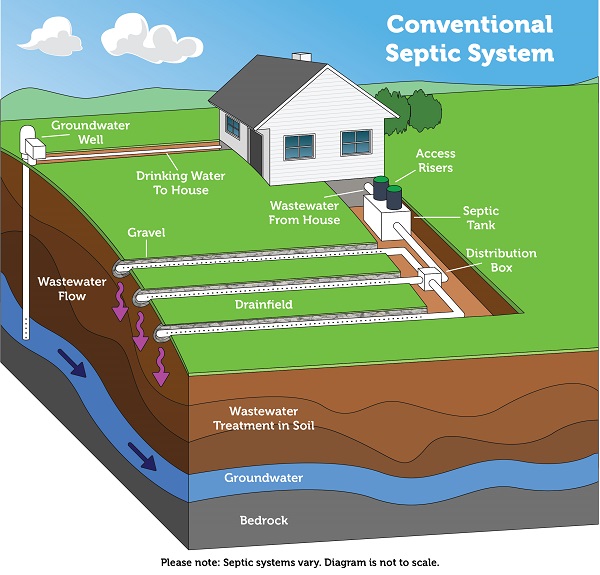Menu
"WE NOT ONLY PUMP YOUR TANK - WE CLEAN IT!"
WE NOT ONLY PUMP YOUR TANK - WE CLEAN IT! Free Septic System Inspection ($99 Value)
Free enzyme treatment - Financing Available
"WE NOT ONLY PUMP YOUR TANK - WE CLEAN IT!"
WE NOT ONLY PUMP YOUR TANK - WE CLEAN IT! Free Septic System Inspection ($99 Value)
Free enzyme treatment - Financing Available
A septic system is an on-site wastewater treatment system. These are invaluable for homeowners who live off-grid or in rural areas, but even many of the 20 percent of households in the U.S. who depend on such systems are unfamiliar with how these systems work.
 Nov 10, 2024
Nov 10, 2024
Understanding how the conventional septic system works is not only a valuable bite of knowledge but can help property owners better maintain and care for their septic tank installation.
You start the day before…
Owning a septic system means…
A septic system quietly supports…
When you think about septic…
In this brief article brought to you by Septic Blue of Lakeland, we give you a brief rundown on the conventional septic system. If you ever need a reputable septic company to take care of installations, replacements, repairs, or maintenance, then consider the uniformed septic specialists at Septic Blue.
A septic system is essentially an on-site wastewater treatment facility. It’s responsible for safely containing and treating household wastewater and ultimately dispersing the filtered liquid effluent into the soil.
Conventional septic systems usually consist of two main components: the septic tank and the drain field (also known as the leach field). Each component plays a vital role in keeping your water and environment safe.
When waste and wastewater flows from the toilet, shower, kitchen sink, or laundry machine, it travels down the drain line and into the septic tank buried out in the yard. This tank, typically made of concrete, fiberglass, or polyethylene, is where the waste and wastewater begin to be broken down.
Inside the septic tank, the wastewater separates into three layers: a top layer of scum, a middle layer of wastewater, and a bottom layer of solid waste. Helpful bacteria in the tank break down the scum and solids into space-saving sludge.
Meanwhile, the partially treated wastewater flows out toward the drain field where it is dispersed through perforated pipes. Here’s where the soil’s natural filtration properties come into play. Beneficial bacteria in the soil break down any remaining contaminants.
Even this basic information has probably opened your eyes to potential maintenance tasks. For instance, you can imagine how even the dense sludge will accumulate. Regular septic tank pumping is essential to restore capacity and prevent overflow.
Moreover, the soil in the drain field area can become overwhelmed if you flood it with wastewater. You must stagger water-heavy activities like laundry, dishwashing, and long showers to prevent the drain field from becoming oversaturated.
Some other maintenance tips include:
These simple measures can help you avoid preventable septic tank repair, but damage is almost impossible to dodge completely. Extreme temperatures, wear and tear, and incidental damage can take their toll on your septic system.
Routine maintenance like septic tank cleaning is advisable once every three years, but there are red flags to keep an eye – and nose – out for. Watch out for these red flags:
Residents in the area can call Septic Blue of Lakeland to hire a uniformed and trained septic specialist. We’re happy to schedule an appointment or arrange an urgent dispatch for as soon as possible.